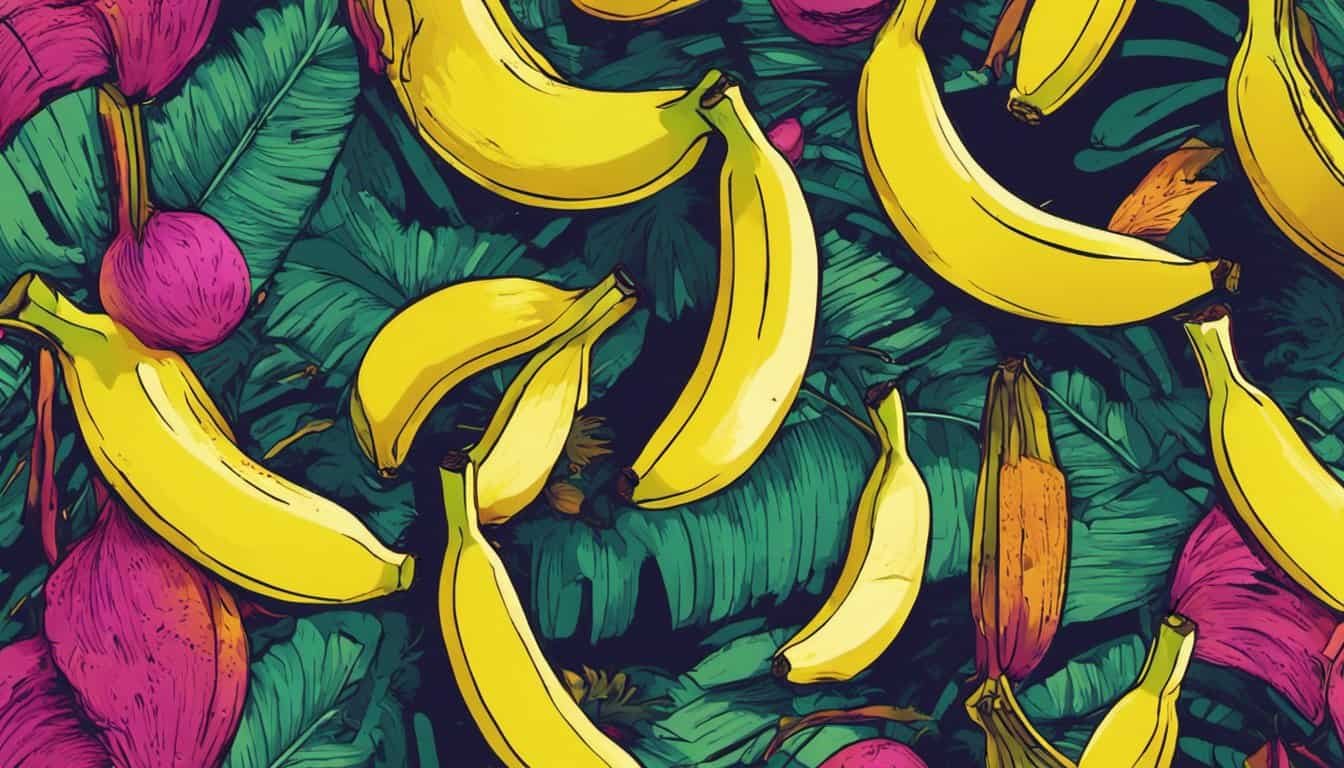The Science Behind Why Bananas Make Everything Taste Like Banana: Exploring the Compounds and Effects of this Unique Flavor
Have you ever wondered why bananas have such a strong and recognizable taste? Or why adding bananas to a recipe can suddenly make everything taste like banana? In this article, we’ll dive into the science behind the taste of bananas and explore the compounds that give this fruit its distinct flavor. We’ll also examine how these compounds can affect other foods, as well as why bananas are commonly used as a flavoring agent. Finally, we’ll consider the possible benefits and drawbacks of using bananas for flavor. For those looking to learn more about bananas and their unique flavor profile, keep reading!
The science behind the taste of bananas.
Have you ever wondered what gives bananas their unique taste? The answer lies in the science of flavor chemistry.
Bananas contain a variety of compounds that contribute to their taste, including sugars, acids, and volatiles. The most prominent sugar in bananas is sucrose, which gives them their characteristic sweetness. However, bananas also contain glucose and fructose, which contribute to their overall flavor profile.

In addition to sugars, bananas also contain acids such as citric acid and malic acid. These acids help balance out the sweetness of the fruit and give it a slightly tart taste.
But perhaps the most interesting aspect of banana flavor is its volatile compounds. These are molecules that evaporate into the air and stimulate our sense of smell. Bananas contain a range of volatiles including esters, aldehydes, ketones, and terpenes. These compounds give bananas their distinct aroma and can vary depending on factors such as ripeness and storage conditions.
Interestingly enough, some research has shown that humans may have evolved to prefer the taste of ripe bananas due to their high sugar content. In fact, our ability to detect sweetness may have played a role in our evolution as we sought out ripe fruits for sustenance.
So there you have it – the science behind what makes bananas so delicious! Next time you take a bite into this beloved fruit, think about all the chemical reactions happening in your mouth that make it so enjoyable.
What compounds give bananas their distinct flavor?
Bananas have a complex flavor profile that is both sweet and slightly tangy. This distinct flavor can be attributed to the presence of various compounds in the fruit.
One of the key compounds that give bananas their unique taste is isoamyl acetate. This compound has a fruity, banana-like aroma and is responsible for the strong scent of ripe bananas. Isoamyl acetate is formed as a result of enzymatic reactions between amino acids and fatty acids within the fruit.
Another important compound in bananas is 2-heptanone, which gives the fruit its slightly nutty flavor. This compound has been found to be more prevalent in ripe bananas than unripe ones.
Additionally, esters such as ethyl butanoate and ethyl hexanoate contribute to fruity notes in banana flavor. These esters are produced during fermentation processes within the fruit.
Other compounds present in smaller quantities also contribute to banana’s unique taste, including aldehydes, ketones, and terpenes.
Understanding these compounds can help us appreciate why we find bananas so delicious and how they differ from other fruits with similar flavors. It also highlights how complex natural flavors are and how many different molecules must come together to create something as seemingly simple as a piece of fruit.
How do these compounds affect other foods?

When it comes to the humble banana, many people are unaware of the impact that its compounds can have on other foods. Bananas contain enzymes and chemicals that can interact with other ingredients, leading to changes in taste, texture, and even nutritional value.
One example of this is the effect of bananas on dairy products. The enzymes in bananas can break down proteins in milk and yogurt, leading to a thinner consistency and a slightly sour taste. However, this same process can also enhance the nutritional value of these products by increasing their levels of amino acids.
Bananas can also affect baked goods such as cakes and muffins. The high sugar content of bananas means they can act as a natural sweetener when added to recipes. However, their moisture content can also lead to denser textures or even soggy bottoms if not balanced correctly with other ingredients.
It’s important for those interested in cooking with bananas to be aware of these effects and experiment with different combinations until they find the perfect balance for their recipe. By understanding how these compounds interact with other foods, we can create more delicious and nutritious meals that truly showcase the versatility of this amazing fruit.
Why are bananas often used as a flavoring agent?
Bananas are a fruit that has long been used as a flavoring agent in various culinary dishes. From smoothies to baked goods, this versatile fruit has found its way into the hearts and mouths of people around the world.
One reason why bananas are often used as a flavoring agent is their distinct taste. Bananas have a sweet, slightly tangy flavor that pairs well with many other ingredients. This makes them an ideal addition to recipes where sweetness is desired but not overpowering.

« banana fibre manual extraction
how much does banana peel weigh »
In addition to their unique taste, bananas also offer several health benefits. They are high in fiber and potassium, which can help regulate blood pressure and support heart health. Bananas also contain vitamin C and vitamin B6, which can boost immunity and aid in metabolism.
Another reason why bananas are popular as a flavoring agent is their availability. Bananas are grown in many parts of the world and are readily available year-round. This makes them an accessible ingredient for both home cooks and professional chefs alike.
Lastly, bananas have a natural creaminess that lends itself well to creating smooth textures in dishes like ice cream or pudding. This quality makes them an ideal ingredient for vegan or dairy-free recipes where creaminess is desired without using traditional dairy products.
In conclusion, bananas’ unique taste profile, health benefits, availability all year round convenience make it an excellent choice for use as flavorings across different culinary applications!
Possible benefits and drawbacks of using bananas for flavoring.
Bananas are a popular fruit that are enjoyed by millions of people around the world. They are known for their sweet, creamy flavor and high nutrient content, which make them a healthy and delicious addition to any diet. However, there are both benefits and drawbacks to using bananas for flavor in food and beverages.
One of the primary benefits of using bananas as a flavoring agent is their versatility. Bananas can be used in a wide range of dishes, from smoothies and baked goods to savory dishes like curries and stews. They can also be used in combination with other flavors, such as chocolate or peanut butter, to create unique taste sensations.
Another benefit of using bananas for flavor is their nutritional value. Bananas are rich in potassium, vitamin C, vitamin B6, fiber, and other important nutrients that support overall health. By incorporating bananas into your diet regularly as a flavoring agent or ingredient in recipes can help you meet your daily nutrient needs.
However, there are also some potential drawbacks to using bananas for flavor. For example banana allergies may cause an allergic reaction if consumed by certain individuals who have this allergy.
In addition they contain high levels of natural sugars which may not be suitable for people with diabetes or those trying to manage their sugar intake.
Overall though the benefits outweigh the drawbacks when it comes to using bananas as a flavorful ingredient or additive. As long as they are consumed within moderation by those who do not have allergies or medical conditions preventing them from consumption; then they provide great taste alongside plenty essential nutrients that promote good health!
Check out our other articles to find out even more about banana.

After exploring the science behind why bananas make everything taste like banana, it’s clear that this unique flavor can have a range of effects in your cooking. Whether you’re looking for new ways to incorporate bananas into recipes or just wondering what gives them their distinct flavor, there’s no doubt these sweet fruits are packed with more than meets the eye! Check out our other articles to find out even more about banana and its fascinating properties.














